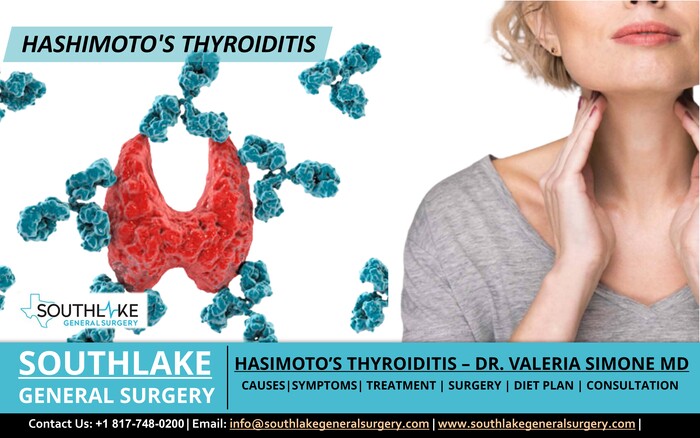Hashimoto’s Thyroiditis also known as Hashimoto’s disease is an autoimmune disease that causes the immune system to attack the thyroid gland, leading to hypothyroidism. When the thyroid gland is attacked, it can no longer make the hormones the body needs.
This disease is more prevalent in women than in men over the age of 40. It may also occur in people who have other autoimmune diseases, such as Type 1 diabetes, rheumatoid arthritis, or lupus.
Hashimoto’s Thyroiditis is one of the most common autoimmune diseases in the United States, with approximately 200,000 people affected, and is now known to affect about 1% of the world population.
What are the causes of Hashimoto’s Thyroiditis?
The cause of Hashimoto’s disease is not known, but it is believed that hormones, infections, or autoimmune disorders trigger it. The disease may affect the thyroid, ovaries, pancreas, or parathyroid. People most often develop Hashimoto’s disease as children, between ages 5 and 10, and most often lose the disease by adulthood. People born with the disease have a higher risk of developing other autoimmune diseases. The following are some causes of Hashimoto’s disease.
Hormones: Hashimoto’s disease is more common among women and older people. The thyroid gland produces two hormones, T3 and T4, which help control the body’s metabolism. When the thyroid gland is damaged, the production of these hormones is affected, leading to hypothyroidism. In a few cases, women who have thyroid problems during the primary year in the wake of having a child. This problem normally disappears, but in a few women, it can cause Hashimoto’s years later.
Family History: People who have a family history of thyroid disease are more like to get Hashimoto’s disease or autoimmune disease.
Exposure to Radiation: Radiation exposure is a risk factor for Hashimoto’s disease. During radiation therapy, high-energy rays are used to treat cancer. Although the treatment is safe, some patients develop an autoimmune disease called thyroiditis. The disease causes the thyroid gland to become inflamed and can lead to hypothyroidism.
Unreasonable Iodine: Over time, exposure to iodine from foods and water has led to the development of a thyroid condition, known as Hashimoto’s disease. The condition is characterized by an enlarged thyroid gland, decreased thyroid function, swollen glands, and other symptoms. It can develop at any age, although most cases are found in people between the ages of 40 and 70 (when the number of thyroid follicles increases due to the aging process), and women are more likely to be affected than men.
What are the symptoms of Hashimoto’s Thyroiditis?
Symptoms of Hashimoto’s thyroiditis vary widely, depending on the stage of the disease. Early-stage Hashimoto’s thyroiditis may cause few if any symptoms. An initial sign of the disease can often appear as an enlarged thyroid, also known as Goiter. As Hashimoto’s thyroiditis disease grows, symptoms may include:
- Weight gain
- Constipation
- Hair loss or thinning of hair
- A problem in getting pregnant
- Weakness
- Depression
- Irregular or heavy periods
- Dry skin
- Feeling cold and feeling nervous or anxious
- Pallor or swelling of the face
- Muscle and joint pain
- Slow heart rate
Since the symptoms of Hashimoto’s thyroid might be the same as other ailments, it is always recommended to consult your doctor to diagnose the problem.
How to treat Hashimoto’s Thyroiditis?
There is no cure for Hashimoto’s disease. Medicines may be prescribed to treat the disease. Thyroid hormone replacement is the treatment of choice for hypothyroidism. Some patients with Hashimoto’s disease may not need to take thyroid hormone replacement if their thyroid hormone levels are under control.
The type of treatment a person with Hashimoto’s disease receives depends on the severity of the disease. A person may need to take medication to treat or prevent the disease or have medical treatment to treat symptoms. A person may also need to change diet and lifestyle habits to control the symptoms of the disease. In some cases, thyroid surgery is necessary to remove the inflamed thyroid.
Treatment of Hashimoto’s thyroiditis aims to reduce the inflammation in the thyroid gland and restore the function of the gland. Some patients with Hashimoto’s disease may not need to take thyroid hormone replacement if their thyroid hormone levels are under control.
Appointment
For more information on Hashimoto’s thyroiditis – causes, symptoms, treatment, and Thyroid surgery. You can contact our healthcare expert today at +1(817) 748-0200. You can also make an online appointment with us.

